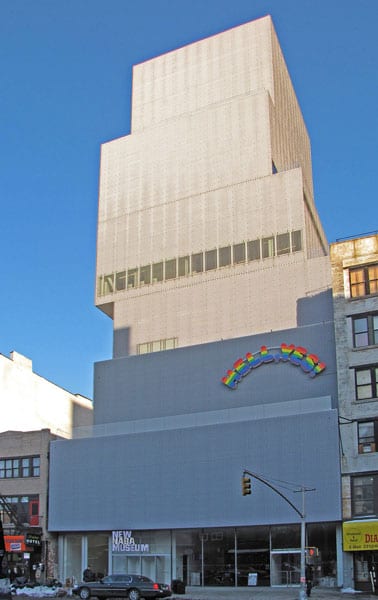
January 23, 2019; New York Times
The New Museum of Contemporary Art in New York City, which prides itself on its open-minded approach to art and declares on its website, “We embrace difference, debate, and multiple viewpoints regardless of race, gender, class, or creed,” has hired Adams Nash Haskell & Sheridan, reports the New York Times, a consulting firm that proudly calls itself a “team of experienced union avoidance consultants.” Its claim to fame? “We can help you quickly convince your employees to vote against the union, because it is a bad thing for them.”
For their part, museum employees cited the institution’s reputation and history in their initial announcement that they wanted to form a union. Curator Martha Tucker, who founded the museum in 1977, these workers noted, had “envisioned an institution that did away with hierarchies—not only in the art exhibited, but in the structure of the Museum itself.”
Sign up for our free newsletters
Subscribe to NPQ's newsletters to have our top stories delivered directly to your inbox.
By signing up, you agree to our privacy policy and terms of use, and to receive messages from NPQ and our partners.
A group of more than 50 artists signed an open letter expressing support of the unionization effort last week. Workers at the New Museum are scheduled to vote today on whether to join Local 2110 of the United Auto Workers.
The museum’s formal position, expressed in a statement released yesterday, voices a politic stance: “We fully respect our employees’ right to self-organize, and we will respect whatever decision they make.” But it does add, “We don’t believe unionization is the best way to preserve what is special about our culture or advance change.” It also notes that the institution only hired the union avoidance folk for an initial consult and that they are now no longer joined in contract.
Employees of the Manhattan-based museum earn as little as $35,000, and the median income for the staff members eligible for union membership is $52,000—only $1,000 over what is considered a living wage. The unionization effort arose as the nonprofit prepares to do an $85 million expansion, raising questions about the institution’s priorities and its future. As a museum editor and union organizer notes in an interview for Jacobin, “The financial reality of museum workers is just not sustainable in New York at this point. There is an assumption that workers in this field come from a privileged background and can take care of themselves financially. This assumption excludes the majority of people and creates serious problems for anyone who isn’t coming to the museum world from a place of significant economic and racial privilege.”—Ruth McCambridge













